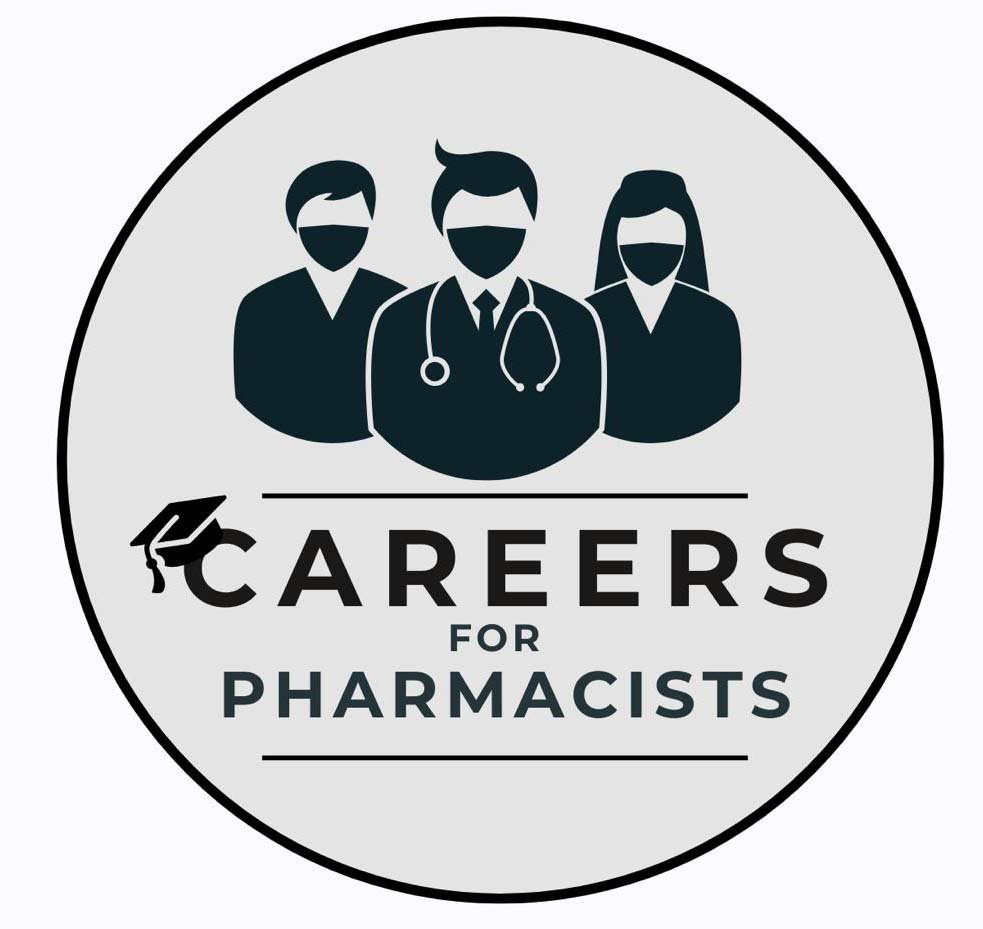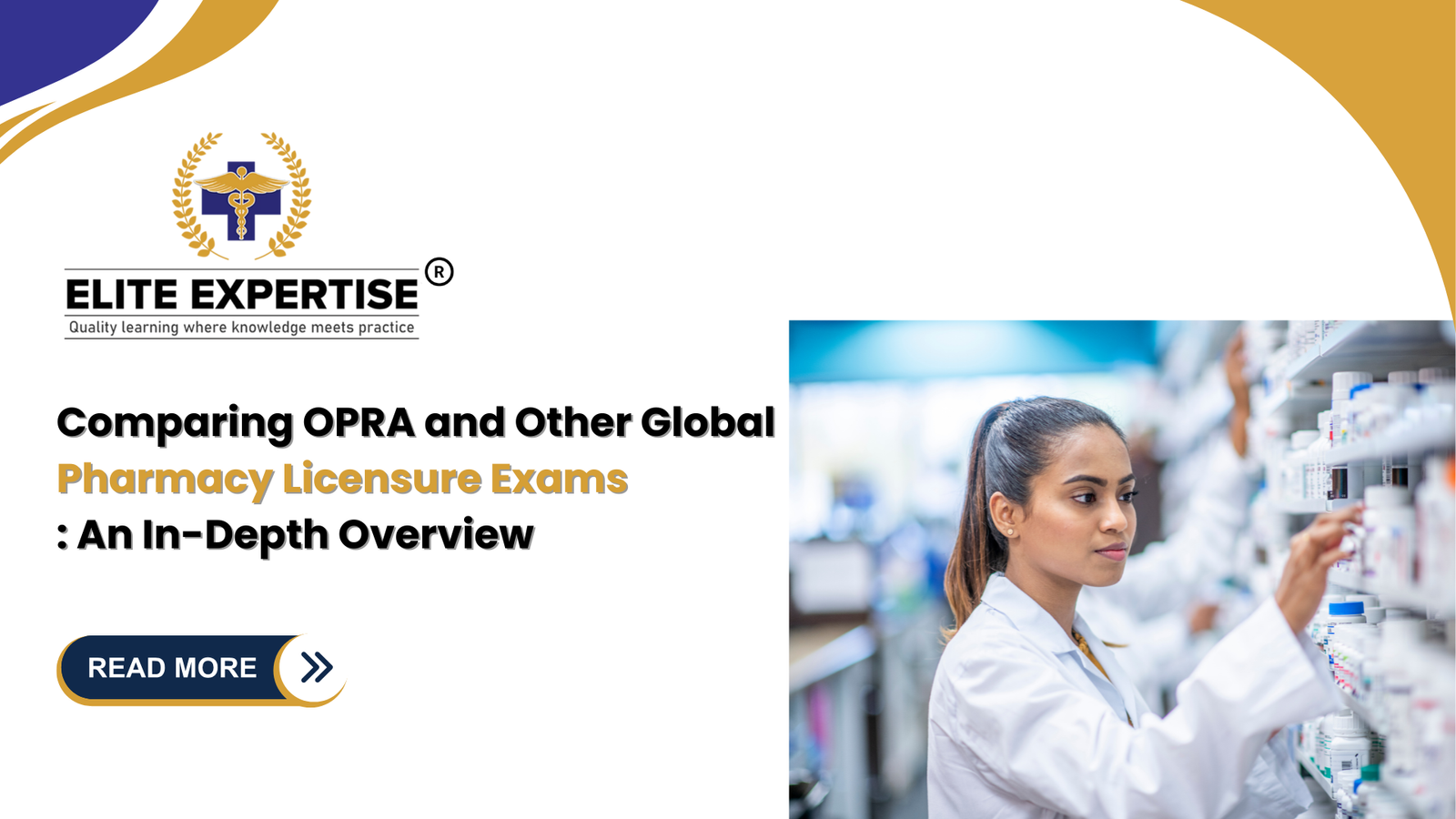For internationally trained pharmacy graduates, achieving the goal of becoming a registered pharmacist in Australia, Canada, the United States, Ireland, the United Arab Emirates, or New Zealand begins with passing a recognized licensure exam.
These exams are designed to evaluate your pharmaceutical knowledge, clinical skills, and readiness to deliver pharmacy care that meets each country’s unique healthcare standards. Below is a comprehensive look at the leading pharmacy licensure exams and how expert guidance from Elite Expertise can help you succeed.
Leading Pharmacy Licensure Exams: Structures & Features
OPRA Exam (Australia & New Zealand)
- Exam Name: Overseas Pharmacist Readiness Assessment (OPRA Exam) pharmacists for licensure exams
- Format: Computer-based, single paper, 120 multiple-choice questions (MCQs)
- Duration: 2.5 hours
- Focus: Clinical practice, pharmacy legislation, ethics, patient safety, and communication
- Key Point: Mandatory after APC eligibility assessment; essential for provisional AHPRA registration and the visa process
- Preparation Tips: Emphasize Australian standards, real-world scenarios, and patient case studies.
PEBC Exam (Canada)
- Authority: Pharmacy Examining Board of Canada (PEBC)
- Process:
- Document Evaluation: Verifies educational credentials
- Evaluating Examination: Focuses on foundational pharmacy knowledge
- Qualifying Examination:
- Part I: MCQs (applied clinical knowledge)
- Part II: OSCE (Objective Structured Clinical Examination—practical and communication skills)
- Eligibility: Minimum four-year pharmacy degree and successful document assessment
- Outcome: Passing both exams allows candidates to apply for a provisional license and complete Canadian practice requirements.
PSI Equivalence Exam (Ireland)
- Authority: Pharmaceutical Society of Ireland (PSI)
- Eligibility: For non-EU/EEA pharmacists, now accepts BPharm, MPharm, and PharmD (as of 2025)
- Process:
- Application & credential review
- After a holistic assessment, candidates may be assigned either the MCQ, the OSCE, both, or (rarely) granted exemption
- The internship/adaptation period has been removed for faster registration
- Exam Structure:
- MCQs: 80 questions covering pharmacy practice, pharmacology, and pharmaceutical calculations for the PSI Equivalence Exam.
- OSCE: Tests practical and clinical judgment in patient-care scenarios.
NAPLEX (USA)
- Authority: National Association of Boards of Pharmacy (NABP)
- Eligibility: Graduates from ACPE-accredited PharmD programs or foreign graduates with FPGEC certification, document verification, and TOEFL
- Format: Computer-based, 225 questions, 6-hour exam
- Content: Practice knowledge, pharmacotherapy, patient care, and calculations
- Additional Requirements: State law exam (MPJE), internship hours as mandated by individual states
- Scoring: Pass/fail system; maximum of five attempts per candidate.
DHA Exam (Dubai, UAE)
- Authority: Dubai Health Authority (DHA)
- Eligibility: BPharm/PharmD degree from a recognized institution, two years’ post-graduation experience, valid license in home country, and Dataflow verification
- Format: Computer-based, 120 MCQs, 90 minutes for pharmacists
- Content: UAE pharmacy legislation, pharmacology, calculations, professional practice
- Passing Score: Usually 60%; conducted multiple times a year at Prometric centers
- Process: written test (MCQ) + oral/practical assessment.
Comparing Pharmacy Licensure Processes
| Country | Pre-Exam Requirement | Exam Components | Post-Exam Pathway | Notable Feature |
| Australia | Skills assessment by APC | OPRA: 1 paper (120 MCQ) | Supervised internship + two intern (written/oral) exams | Real-world clinical focus, Rasch scoring |
| Canada | Document evaluation (PEBC) | Evaluating (if needed), Qualifying (MCQ + OSCE) | Provisional registration, practical requirements | Strong clinical and OSCE component |
| Ireland | Credential/holistic review (PSI) | MCQ + OSCE (as assigned) | Immediate registration post-exam; no internship/aCV period | Pathways tailored post-assessment |
| USA | FPGEC, TOEFL, state board approval | NAPLEX (225 MCQs), MPJE (law) | State licensure, prescribed internship hours | Five-attempt rule, modern blueprint |
| Dubai (UAE) | Two years’ experience, Dataflow | DHA: 120 MCQs, oral test | Direct license on clearing both assessments | Quicker process; UAE law & practice focus |
Choosing the Right Exam & Country
When selecting your licensure pathway, consider:
- Destination country and long-term settlement goals
- Recognition of your qualifications
- Career prospects and local pharmacy practice standards
- Exam/process complexity, time, and cost
- Visa and residency options
For permanent residency and expanded practice, Australia (OPRA), Canada (PEBC), and Ireland (PSI) are notable options. For quicker employment and career mobility in the Middle East, the DHA (Dubai) offers a fast-track option.
How Elite Expertise Supports Your Success
Elite Expertise is renowned for coaching overseas pharmacists through each stage of OPRA (Australia/New Zealand), PEBC (Canada), and PSI (Ireland) exams.
- Highly qualified faculty: Mr. Arief Mohammad and Mrs. Harika Bheemavarpu, accredited clinical pharmacists with deep international experience
- Comprehensive study program: Full syllabus coverage, 100+ clinical case studies, 80+ live and recorded interactive sessions, and exam-mimicking mocks
- Industry-leading results: Track record of high first-time pass rates across OPRA, PEBC, and PSI routes
- Individual mentorship: Personalized doubt-clearing, guidance on applications, and real-time progress tracking
- Flexible study modes: Live and recorded online classes to fit international time zones and work commitments
Final Thoughts
Becoming a licensed pharmacist abroad is a significant and rewarding challenge. Choosing the right country and successfully passing their licensure exam—OPRA, PEBC, PSI, NAPLEX, or DHA—depends on your career aspirations, background, and future plans. With the right preparation and expert-led mentorship from institutions like Elite Expertise, international pharmacy graduates can confidently start their global pharmacy careers
Frequently Asked Questions (FAQs) – Pharmacy Licensure Exams for International Graduates
The first step is passing a recognized pharmacy licensure exam such as OPRA (Australia), PEBC (Canada), PSI Equivalence Exam (Ireland), NAPLEX (USA), or DHA (UAE). These exams assess your clinical knowledge, pharmaceutical skills, and readiness to practice according to local healthcare standards.
The OPRA exam is a computer-based test with 120 multiple-choice questions, lasting 2.5 hours. It covers clinical practice, legislation, ethics, patient safety, and communication. It is mandatory after APC eligibility assessment and required for AHPRA provisional registration.
The PEBC process includes document evaluation, the Evaluating Exam (if required), and the Qualifying Exam, which has two parts: Part I (MCQs) and Part II (OSCE). Passing both exams allows candidates to apply for a provisional license and complete Canadian practice requirements.
As of 2025, the PSI accepts BPharm, MPharm, and PharmD degrees. The internship period has been removed for faster registration. After credential review, candidates may be assigned the MCQ exam, OSCE, or both, and successful candidates can register immediately without adaptation periods.
To take the NAPLEX, you must be a graduate of an ACPE-accredited PharmD program or hold FPGEC certification as a foreign graduate. You also need document verification, TOEFL scores, and approval from a state pharmacy board.
The DHA exam is a computer-based test with 120 MCQs over 90 minutes. It covers UAE pharmacy law, pharmacology, calculations, and professional practice. Candidates must score around 60% to pass and may also undergo oral or practical assessments.
The UAE, through the DHA exam, offers one of the quickest pathways. With the required qualifications and two years of experience, candidates can directly obtain a pharmacy license after clearing the written and oral assessments.
Consider your long-term settlement goals, recognition of your qualifications, career growth opportunities, visa options, exam complexity, and total cost. Australia, Canada, and Ireland are ideal for permanent residency, while Dubai offers faster job opportunities.
Elite Expertise provides comprehensive coaching for OPRA, PEBC, and PSI exams, including 100+ clinical case studies, 80+ interactive sessions, mock tests, and personalized mentorship from experienced pharmacists. Their students consistently achieve high first-time pass rates.
The timeline varies by country and candidate, but most international pharmacists complete the process in 12–24 months, including document evaluation, exams, internships (if required), and final registration.

